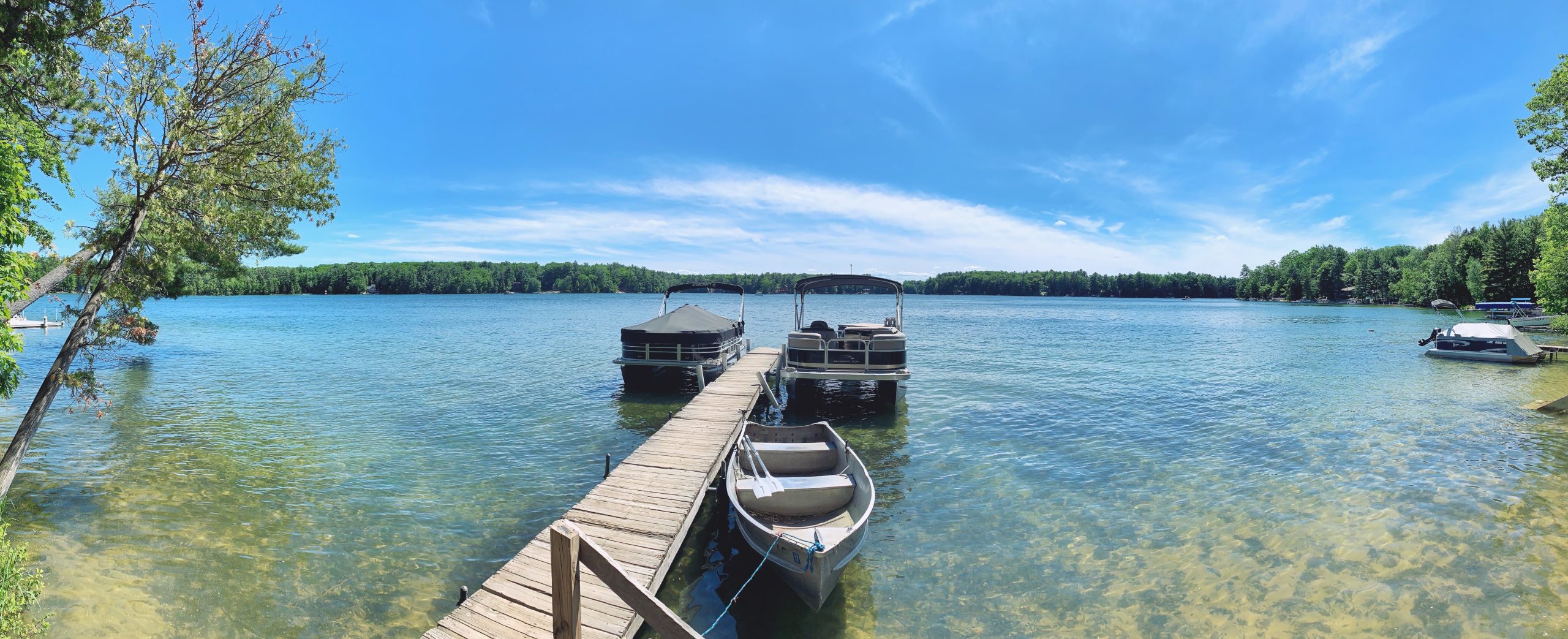The call of the water has always been irresistible, and in recent years, recreational boating and water sports have seen a significant surge in popularity. This trend reflects a growing desire to explore and enjoy the serenity and excitement that water activities offer. Whether it’s the peacefulness of a solo kayak trip, the camaraderie of a family sailing adventure, or the thrill of high-speed water sports, the world of boating and marine construction provides a diverse array of experiences that appeal to a wide range of enthusiasts.
In this article, we delve into the essence of this rising tide in recreational boating. We explore the various facets that make boating a beloved pastime for many – from selecting the perfect vessel and learning essential nautical skills to engaging in exhilarating water sports and joining vibrant boating communities. For those drawn to the allure of open waters, whether seasoned sailors or curious newcomers, the boating world offers endless opportunities for adventure, relaxation, and connection with nature and fellow boaters.
The Appeal of Recreational Boating
The allure of recreational boating lies in its diverse offerings, catering to a wide spectrum of interests and experiences. It’s a hobby that combines the thrill of exploration with the tranquility of being on the water, making it a cherished activity for many.
- Connection with Nature: Boating offers a unique opportunity to connect with the natural world. Whether it’s navigating along a serene river, anchoring in a secluded bay, or sailing on the open ocean, boating brings you closer to the water and wildlife, offering a sense of peace and escape from the urban hustle.
- Versatility of Activities: The boating world is rich with activities for all ages and interests. From leisurely pursuits like fishing and bird watching to more active endeavors like water skiing or wakeboarding, there’s something for everyone. Boating can be a solo adventure or a social activity with family and friends.
- Mental and Physical Benefits: Recreational boating is not just fun; it has tangible health benefits. It’s a form of physical exercise that can improve strength and flexibility, particularly in activities like rowing or handling sails. Moreover, being on the water has a calming effect, reducing stress and promoting mental well-being.
- Adventure and Exploration: For the adventurous spirit, boating offers endless possibilities for exploration. Discovering new waterways, visiting remote islands, or simply finding a new fishing spot can be thrilling experiences. Each boating trip brings the potential for new discoveries and stories.
- Skill Development and Learning: Boating is an engaging hobby that involves continuous learning and skill development. Navigating a boat, understanding maritime rules, and dealing with different weather conditions can be challenging yet rewarding. It’s a pursuit where there is always something new to learn, no matter your experience level.
- Sense of Freedom and Escape: There’s a unique sense of freedom that comes with boating. The ability to set sail or motor away from land, even if just for a few hours, provides an escape from everyday life. It’s a chance to unwind, recharge, and enjoy the simplicity of being on the water.
Recreational boating captivates with its blend of adventure, relaxation, and connection to the natural world. It’s a pastime that offers not just physical activities but also a chance for personal reflection and enjoyment in the serene beauty of aquatic environments.
Choosing the Right Boat
Selecting the ideal boat is a crucial decision in the world of recreational boating, as it can significantly impact your enjoyment and safety on the water. The right boat should align with your intended activities, skill level, and personal preferences. Here are key factors to consider when making this choice:
- Type of Boating Activities: Start by considering how you plan to use the boat. Are you interested in leisurely lake fishing, exhilarating ocean sailing, watersports, or cruising with family and friends? Different activities require different types of boats – from fishing boats and sailboats to pontoons and speedboats.
- Size and Capacity: The size of the boat should accommodate your typical number of passengers and activities comfortably. Larger boats offer more space and amenities but may require more skill to operate and higher maintenance. Smaller boats are easier to handle and store but may offer limited space and functionality.
- Skill Level and Handling: Your experience and comfort level in handling various types of boats are important. Beginners might prefer smaller, more manageable boats, while experienced boaters may be comfortable with larger, more complex vessels.
- Budget Considerations: Budget is a key factor, encompassing not only the purchase price but also ongoing costs such as maintenance, storage, fuel, and insurance. Consider both initial and long-term costs when selecting a boat.
- New vs. Pre-Owned: Decide whether to buy a new boat or a pre-owned one. New boats come with the latest features and warranties, while pre-owned boats can offer value for money but may require more maintenance.
- Storage and Transportation: Consider where you will store the boat when not in use and how you will transport it. Larger boats may need a slip at a marina or a storage facility, while smaller boats can often be trailered and stored at home.
- Test Before You Buy: If possible, test the boat on the water. This can give you a feel for its performance, handling, and suitability for your needs.
Remember, the right boat is one that not only fits your budget and lifestyle but also brings joy and satisfaction to your boating experiences. Take the time to research, seek advice from experienced boaters, and choose a vessel that will serve as a gateway to memorable adventures on the water.
Essential Boating Skills and Safety
Mastering essential boating skills and adhering to safety practices are fundamental for an enjoyable and secure experience on the water. Whether you’re a novice or an experienced boater, understanding and implementing these core aspects is crucial.
- Basic Boating Skills: Familiarize yourself with basic boating operations, including steering, docking, and anchoring. Understanding how to navigate your boat in various conditions, read nautical charts, and use a compass are also essential skills.
- Safety Regulations and Navigation Rules: Knowledge of local and international boating rules and regulations is imperative. This includes right-of-way rules, speed limits, and understanding navigational markers and buoys.
- Emergency Procedures: Be prepared for emergencies by knowing how to handle situations like engine failure, capsizing, or a man overboard. Regularly practice safety drills and ensure everyone on board is familiar with emergency procedures.
- Communication Skills: Effective communication is key, especially in situations where quick decision-making is required. Learn to use maritime communication tools, including VHF radios, and understand the protocols for distress signals and emergency calls.
- First Aid and CPR Training: Basic first aid and CPR knowledge can be lifesaving in emergencies. Keep a well-stocked first aid kit on board and ensure that at least one crew member is trained in first aid and CPR.
- Weather Awareness: Always check the weather forecast before heading out and understand how different weather conditions can affect water conditions and visibility. Learn to recognize signs of changing weather and know when to head back to shore.
- Boating Safety Course: Consider taking a boating safety course. Many regions require certification, and even where it’s not mandatory, such courses equip you with valuable knowledge and skills.
- Life Jackets and Safety Gear: Ensure that life jackets are available for all passengers and crew, and encourage everyone to wear them. Additionally, equip your boat with other safety gear like fire extinguishers, flares, and a horn or whistle.
- Boat Maintenance: Regular maintenance of your boat is crucial for safety. This includes routine checks of the engine, fuel, electrical systems, and hull integrity.
Boating safety and skills are ongoing commitments. Continuously educate yourself, practice safe boating habits, and stay updated with the latest in boating safety to ensure a safe and enjoyable experience for everyone on board.
The Joys of Water Sports
The excitement and thrill of water sports add an exhilarating dimension to the boating experience. Engaging in these activities not only enhances your physical fitness but also provides an opportunity for adventure and fun on the water. Here’s a look at some popular water sports and what they offer:
- Water Skiing and Wakeboarding: These high-speed water sports are perfect for thrill-seekers. They require balance and strength but offer an exhilarating rush as you glide across the water’s surface. Ideal for those who enjoy a physical challenge and the thrill of speed.
- Paddle Boarding: For a more serene experience, paddle boarding is an excellent choice. It’s a fantastic way to explore calm waters while also providing a full-body workout. Paddle boarding is great for all ages and skill levels, offering a peaceful way to connect with nature.
- Kayaking and Canoeing: These activities allow for a closer connection to the water and are excellent for exploring rivers, lakes, and coastal areas. They can be relaxing or physically demanding, depending on the water conditions and your paddling style.
- Jet Skiing: For a fast-paced and exciting experience, jet skiing is a popular choice. It’s a fun way to explore open waters and satisfy your need for speed. Always ensure you understand and adhere to local regulations and safety guidelines.
- Sailing: Combining skill, strategy, and the forces of nature, sailing is a rewarding experience that can be both relaxing and challenging. It’s an excellent way to develop navigational skills and enjoy the tranquility of the wind and waves.
- Snorkeling and Scuba Diving: If you’re interested in what lies beneath the water’s surface, snorkeling and scuba diving are fantastic ways to explore marine life and underwater landscapes. They offer a unique perspective on the aquatic world and can be both educational and awe-inspiring.
- Fishing: Fishing from a boat can be a peaceful and rewarding experience, whether you’re a seasoned angler or a beginner. It’s a chance to unwind, connect with nature, and maybe even catch your dinner.
Regardless of which water sport you choose, each offers a unique way to enjoy the water and creates opportunities for memorable experiences. These activities not only enhance your boating adventures but also contribute to your physical and mental well-being.
The Community Aspect of Boating
One of the most enriching aspects of recreational boating is the sense of community it fosters. Boating isn’t just about navigating waterways; it’s about the connections and camaraderie formed with fellow enthusiasts. Here’s how the community aspect enhances the boating experience:
- Boating Clubs and Associations: Joining a boating club or association can greatly enhance your boating life. These communities provide opportunities to meet people with similar interests, share knowledge and experiences, and participate in organized events like regattas, fishing tournaments, or group cruises.
- Social Gatherings and Events: Many boating communities host social events, from casual dockside gatherings to more formal galas. These events are great for socializing, networking, and forming lasting friendships. Participating in these gatherings can also provide a wealth of information for novice boaters.
- Learning and Mentorship: For those new to boating, the community offers a valuable resource for learning and mentorship. Experienced boaters often enjoy sharing their knowledge, offering advice on everything from boat maintenance to navigating local waters.
- Community Support and Safety: Boating communities look out for each other, often providing support in times of need. Whether it’s helping a fellow boater with repairs or offering assistance on the water, there’s a shared sense of responsibility and support among boaters.
- Environmental Stewardship: Many boating communities are actively involved in environmental conservation efforts. They organize clean-up events, promote eco-friendly boating practices, and work towards preserving the waterways for future generations.
- Family Involvement: Boating is an activity that can be enjoyed by the entire family. Community events often include family-friendly activities, making it an inclusive experience for all ages. It’s a way to build family bonds and instill a love for boating and the outdoors in younger generations.
- Cultural Exchange: In areas with diverse boating communities, there’s an opportunity for cultural exchange. Boaters from various backgrounds share their unique traditions and experiences, enriching the community’s tapestry.
The community aspect of boating provides a platform for shared experiences, learning, and support, enhancing the overall enjoyment of the sport. It’s not just about the boats; it’s about the people you meet and the bonds you form on the water.
Conclusion: Navigating a World of Aquatic Adventures
The world of recreational boating and water sports is a tapestry of adventure, relaxation, and community, offering a unique escape from the everyday and a chance to engage with the natural world in a profoundly personal way. Whether you’re skimming across the waves at high speed, exploring serene waterways, or simply enjoying the camaraderie of fellow boating enthusiasts, these activities provide a rich, diverse experience that is both invigorating and soothing.
As you embark on or continue your journey in recreational boating, embrace the wide spectrum of opportunities it presents. From the joys of mastering a new water sport to the tranquility of a quiet sail, the thrill of exploring uncharted waters, or the warmth of community gatherings, each experience adds a unique chapter to your boating story. Remember, every venture onto the water is an opportunity for discovery, growth, and connection — with nature, with others, and with yourself.
In the vast and vibrant world of boating, the possibilities are as limitless as the horizons. Set sail into this world of aquatic adventures, and let the waters be your guide to unforgettable experiences and lifelong memories.





